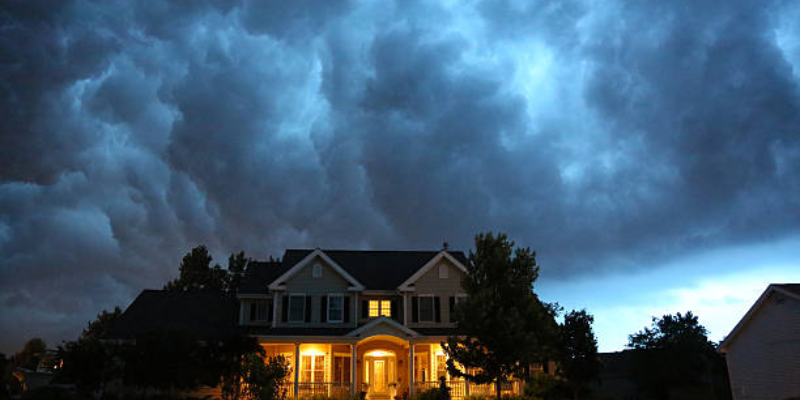How to Compare Home Insurance Quotes Effectively
Choosing a policy that meets your particular requirements plays a significant part in protecting your house. However, why does purchasing home insurance seem as tedious as it does? If you are looking for home insurance or checking if yours is satisfactory, knowing how to evaluate quotes is important. In this article, we’ll explain how to do this the right way, simplifying the process so you can easily arrive at the best decision.
Analyze Your Requirements
Now let’s identify which regulations are specific to these features by analyzing which components are most productive to compare amongst aides or other websites. Homeowners have different conditions, which are important to understand in terms of features that can be part of a policy. Here are a few:
Home Location: The radius in which you live determines the amount of risk your house is under. Do you live in an area prone to hurricanes, floods or forests fires? If so, you may need to add extra coverage.

Value Of Your Home: The total costs incurred in rebuilding your house in the event of a calamity is usually not the same as it’s market price. It is always better to have a coverage that provides replacement value rather than simply the current market rate.
Personal Belongings: For certain valuables like jewelry, art or collectibles, special riders may be required since these tend to have unique reimbursement caps.
Understanding what you want simplifies the process of looking for different offers. Don’t forget that the most affordable option isn’t always the optimum one, instead, aim for robust protection that meets all your requirements.
Getting a Few Estimates
As soon as you are aware of what you want, begin to search for estimates from different companies. This is perhaps the most important step since premiums differ a lot even within closely related policies. Here's how to do it:
Online Tools: A lot of insurers today have online quote generators where you input information regarding the scope of your home and receive a quote on the spot. Remember that these numbers can exclude other relevant perks available to you.
Agent Consultation: Discussing directly with an agent enables you to get advice geared towards your unique situation, and ensures that no important details are left out of the discussion. They are also capable of articulating complicated terms far more effectively than machines.
Almost all insurance companies’ web pages are grouped in one place so clients do not struggle getting important details which is quite convenient. It’s worth noting, however, that any details provided need to be verified against other official sources for assurance on the information’s credibility.
The more quotes you take, the better positioned you will be at the negotiation table. This not only assists in negotiations but also brings to light hidden charges or limitations that may affect the overall cost.

Important things to analyze
Now that you have narrowed down your options, let’s explore how to properly evaluate each of the quotes you have received.
Limitations on Coverage and Deductibles
In essence, coverage limits are the minimum dollar amount that an insurance company is liable to pay for your claims. Always remember, if you decide to cover these, makes sure that the limits set with the coverage insurance will account for all the possibilities. As an example, if you choose to dismiss your home’s rebuild expense limits, you would have to pay the extra cost that’s over the maximum.
Deductibles. That's the minimum part of a covered claim that the policy owner has to pay before the insurance has to give any aid. Additionally, lower deductibles typically come with high premiums to be paid monthly. Maintaining a good monthly cash flow can therefore allow for a balance with out-of-pocket costs when making claims.
Offers Used
Insurance providers regularly offer some discounts for mitigating certain risks. These can be installing certain security features, retaining a healthy credit score, policy bundling, or simply being loyal clients. Don’t forget to inquire about applicable discounts and how they affect the total premium.
Reliability and Support
Excellent price and poor service is a bad combination and convenience during cashed out situations.Items like online reviews and ratings can help with the assessment. Additionally, check if they have a hotline and if it is attended round the clock, how easy is it to contact them especially after calamities.
Claims Procedure
The ease of claims payout is equally as important for any policyholder. Look for information regarding the response times and what documents are needed from your end. An open procedure is often supportive of the insured during difficult times.
Avoidable Mistakes
To achieve the most favorable results when examining quotes, be sure to remember:
Reading Fine Print: Do not assume coverage applies to you just because it states Your region. Will coverage of your location be beneficial for damages expected?
Setting a Budget: The only the cheapest option is bound not to be the best. Permit documents woes and affordability problems above policy adequacy and effectiveness proportions.
Underinsuring: Choosing lower coverage for cheaper rates can offer short term savings; however, down the line, it may leave you financially stranded. Always err on the side of caution here.

Making the Final Decision
With the analysis having been done, the selection of the correct insurance policy seems clearer. Follow your gut alongside the logical information collected throughout the journey. In some cases, the emotionally heavy brand is more desirable, even if their rates are higher than average, and their quality isn’t as reliable.
Try to keep in mind that your provider needs to have a good degree of flexibility. As time passes, life events such as getting married or having children, as well as renovations you do will affect your insurance needs. Try to find a provider that is easy to work and adapt with.



